Partner content in association with
Digital Trust: Unlocking the next wave of growth
Singapore and Hong Kong – the global gateways to Asia – are picking up speed in the race to bring digital assets and blockchain into the mainstream. These hubs, with strong financial infrastructures, no capital controls, and robust public-private partnerships, offer glimpses into the future of digital currencies and payment infrastructures.
To discuss this topic and more, DealStreetAsia, in partnership with Payment Asia, recently hosted a special event in Singapore on the Future of Money.
Titled ‘Digital Trust: Unlocking the next wave of growth,’ the session featured a power-packed panel consisting of Dennis Le, Vice President of Investments, Openspace Ventures; Shaun Leong, Equity Partner, Withersworldwide; Kavi Harilela, Business Director, Payment Asia; and Bosco So, Legal Director, Hong Kong Money Service Operators Association.
In his inaugural address prior to the panel session, Payment Asia’s Kavi Harilela made a series of observations. He began by pointing out that the rigorous and excessive KYC norms and compliance procedures in place today across most geographies have resulted in banks turning away numerous legitimate clients.
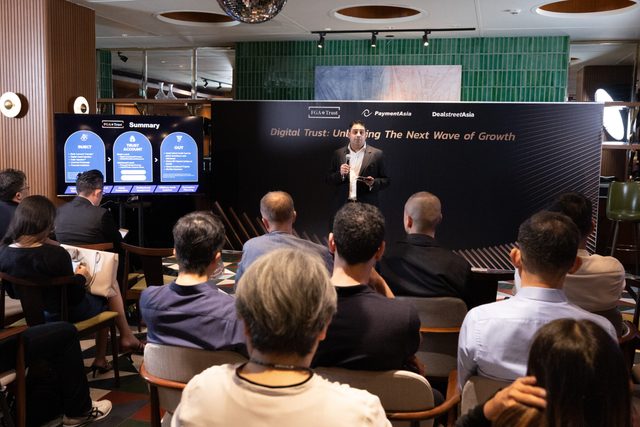
His argument was that, while it was crucial to ensure integrity in the financial market, there needs to be a balance between compliance and acceptability and onboarding of legitimate clients, and added that Payment Asia, via FGA Trust, offered a potential solution.
“FGA Trust is a regulated trust in Hong Kong that operates under the HK Company Registry. We understand that trust is often perceived as one for the old wealth, one for people passing their wealth from generation to generation, for estate planning but trust is a much more powerful vehicle than that. Coming from a company in the payment space and using our fintech background, we are able to incorporate this dynamic world and utilising our banking and custodian arms, FGA Trust enables the inclusion of a diverse asset class within our trust ecosystem,” he said.
According to Harilela, trusts offer several advantages, including the ability to avoid probate, provide privacy, control and distribute assets, and potentially minimise taxes.
“Trusts can be revocable or irrevocable. They have privacy and confidentiality, flexibility, and customisation. Trusts can be tailored to meet specific needs,” he added.
Harilela highlighted that Hong Kong was a favourable jurisdiction for trusts. The territory has an established legal system, sound financial infrastructure, and a favourable tax regime, which makes it highly attractive for international families seeking cross-border wealth management solutions.
Further, he was of the view that trusts offered an alternative to traditional banking. “Modern digital trust supports injections of all asset classes, ranging from fiat currency, digital currency, alternative investments, commodities… Clients are empowered to enjoy a comprehensive suite of financial services, liberating them from the confines of the traditional banking system. We have identified that trusts can be powerful vehicles that can be adopted by individuals and businesses. There is less bureaucratic tape and hindrance than holding traditional banking solutions,” he added.
Responding to the inaugural address, Shaun Leong, from Withersworldwide, said recent changes in Singapore law meant that digital assets – cryptocurrencies or NFTs – could be recognised as a form of property, implying that these assets could be held under a trust.
“I have not seen the use of blockchain technology to manage a trust, but I think increasingly, it won’t be surprising to see high net worth individuals or even family offices, who are open to having a diversified portfolio, have a small percentage of the investment in a digital asset space,” he said while adding that Singapore still maintained an official stance that crypto was not a good storage of value.
Meanwhile, Hong Kong Money Service Operators Association’s Bosco So felt that HK regulations were still a grey area on the crypto front, and therefore, trusts were the ‘most legit way to hold digital assets at the moment’.
Joji Philip, editor-in-chief at DealStreetAsia, who moderated the panel, began with the latest developments in crypto and pointed out that after the FTX collapse in late 2022 and all the accompanying negative news, the worst appeared to be over for investors in this space. The last couple of months have seen crypto shake off the ice after a long winter, he said.
He also touched on the expanding universe of tokenization and sought the panel’s view on whether this could be the future of money, as the flexibility of blockchain technology and its adoption across various sectors could help with asset liquidity and investment opportunities.
Click here to watch a video of the panel discussion and read on for a transcript of the discussion, edited for brevity and clarity.
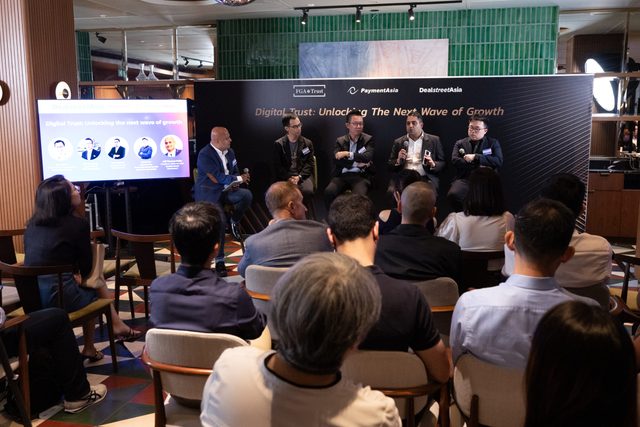
After the FTX collapse in late 2022, is the worst over for investors in cryptocurrencies? Also, how do you see the expanding universe of tokenization? Are we finally seeing the maturation and real-world use of tokenization? Is this the future of money?
Dennis Le: As an investor, I think the past 12-18 months were an opportunity for those who truly believed in the ecosystem to enter the market, as the price was quite depressed, and everyone basically got scared after FTX and other bad news. But the past few months have been quite amazing. We believe the market bottomed last October and November in terms of sentiment. When the Fed pivot their tones, and when there is news about Bitcoin ETF, for example, there has been a massive amount of liquidity coming into the market. We are seeing it as the beginning of a new bull market. This might last for a while, but it won’t last forever because crypto has always been quite reflexive and quite cyclical. I will leave it to professional asset managers to find a way to invest in the market.
On new forms of tokenization, I think the market has gone through a testing phase. People are testing different assets for tokenization, which is great because it brings accessibility and liquidity. Things which were too expensive and illiquid are now being assessed by retail investors, basically unlocking values for both the buyers and sellers. Whether this trend will continue, whether the market will mature, or whether it will become the future of money, there are a few conditions to be met. Ironically, the most important thing that needs to be resolved is something that crypto was supposed to offer, which is trust. The trust that these platforms which are offering all these forms of tokenizations will do what they are promising to do for the end customers, the trust they will behave in adverse situations, the trust they will not commit fraud, that they will do proper due diligence on the assets that they are tokenizing – we don’t know all of this yet. Will crypto be able to build trust and track record with its retail customers?
For tokenization to become the new standard in the market, the trust needs to be managed, and there are two ways of doing it. First, we ask the government to come in and enforce that trust. The second way of doing it is to remove trust from the ecosystem and then build a consensus layer with technology to remove any individuals or groups of individuals to be able to control the outcome of whatever protocol is out there. Not many people have been able to build something meaningful yet, but we will actually seriously look into any projects which are trying to remove trust from the whole system.
After the FTX and other crises, has Singapore put in place sufficient safety measures for investors within the existing digital assets ecosystem? Also, don’t you think that ETFs for cryptocurrencies mark another milestone towards integrating digital assets within the traditional financial ecosystem, signalling the growing confidence of regulatory bodies in the stability and maturity of the digital assets market?
Shaun Leong: There has been reinforced clarity on two key domains: first, consumer and retail protection, and second, ensuring that businesses can continue to thrive. So, it is all about having a balance between promoting innovation and risk management or mitigating exposure. It is important to understand that the iPhones we are all using today are older than cryptocurrencies. Bitcoin is only about 15 years old, and in this period, we have had three collapses, and each was worse than the other. This recovery, or the bull run, is the fastest ever. And if you look at the 15-year horizon, crypto has now risen to the highest spot price ever historically. Now, compare it to the US dollar, which has a 200-year history. So, I think it is too early to see crypto as an alternate storage of value, but it is also premature to write it off as well. The key point is to learn from the lessons of the past in terms of accountability and setting risk management parameters. When you are talking about regulation, a lot of it, unfortunately, is to deal with hindsight in terms of the lessons we have learnt from the past, and I say this for all jurisdictions. We don’t know when the next bear market will come. But when it comes, it could hit the hardest ever. So, it is all about preventing that.
The impact of ETFs on the crypto space cannot be underestimated. It came before the current bull run. I see it as a recognition that even in the deepest of the crypto winter several months ago, they saw that greater value could be extracted from the crypto ecosystem. More important than that, ETF normalises crypto in the sense that it allows us to understand it on par with equities, bonds and other financial instruments, which can be structured, leveraged and securitised. I see a roadmap for greater opportunities, but also a roadmap for greater risk to be managed.
Why should Asia’s HNWIs and UHNWIs invest in digital assets?
Kavi Harilela: Digital assets will have a place to stay in this world. We have seen large companies now accepting digital assets as payment methods. We look at bitcoin and all other cryptocurrencies and see their main benefit and what they were established to do, first storage of value and then for the movement of funds. The utility apart, if we look at investments and HNIs, and if we look at a portion of their portfolio, we believe it should be diverse enough for some to be kept in crypto. And we have seen that from a lot of our HNI clients. They have been bullish on crypto and have always been supporting this product.
The digital assets space is highly fragmented. Different firms tackle the same problem separately, resulting in a lack of liquidity on any particular platform. There are no common standards for token issuance, trading, and settlement. We also see a lack of interoperability between the different platforms and service providers—what can be done here?
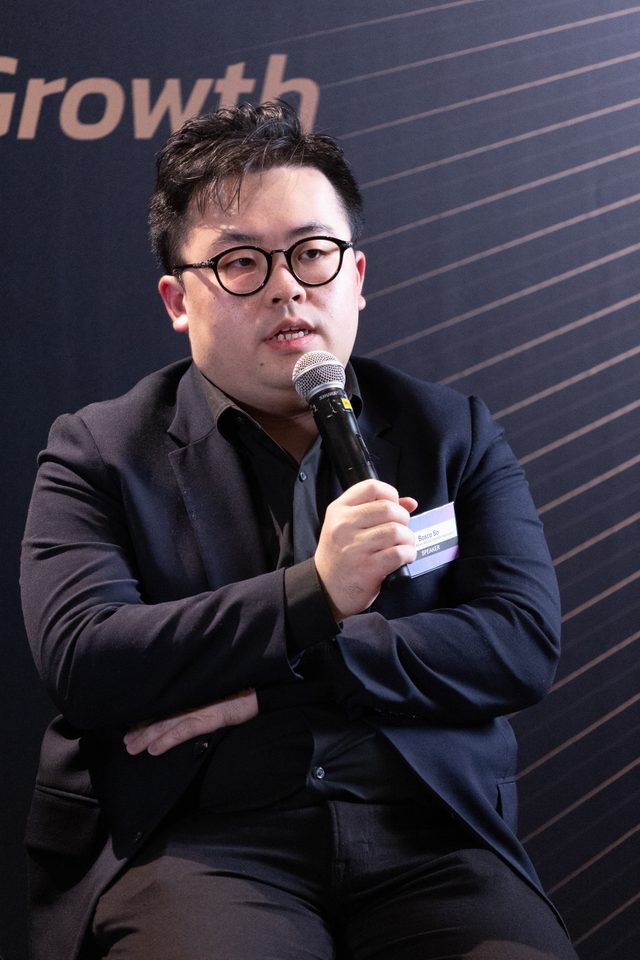
Bosco So: When you are talking about issuing tokens, and lately, in the recent bull run, we have seen there are a lot of odd coins, or allow me to say shit coins. And for all of these shit coins, there is no background, and you can only read their white papers. You don’t know who is behind them, and you can’t do any due diligence on them. It is all pure roadmap and their visions. Most of them would not even list, or some would list in some of the smaller exchanges and go to 10x or even 100x. But most of the investors who invest at the earliest stage will suffer a huge loss as most coins won’t list and their money would be gone. We need regulations here such as listing rules like we impose on stocks, or we might need an authority to govern these tokens before they are listed and issued to private investors.
Startups in all major ASEAN countries, some of which are unicorns, have raised loads of capital from investors to address the issue of real-time cross-border payments and settlement solutions. Currently, many of them are still playing the arbitrage game. Can the advancements we are seeing in the digital assets space help in cross-border transactions? Can we have an investor’s perspective?
Dennis Le: We have been looking at this space for some time now, and there are so many companies. This segment is very competitive. Everyone is trying to differentiate themselves, but it all boils down to two factors – cost and time to money, or whether you can receive money very fast. When we look at traditional players, the inefficiencies came from a few things. There is a lot of friction because there are so many intermediaries in between, and each of them is doing their own processes – sometimes manual, sometimes automated, and each of them is subject to different regulations. So, they have to do their own AML and KYC, and the SWIFT network itself has inefficiencies. Crypto does help reduce the costs and the time to money in some of these steps, but it is not able to remove all. We recently did due diligence on a company that was trying to do remittances using crypto as the backend rail. They still need to have local partners to do on-off ramping, need to do AML and KYC, and still need to be compliant. There are so many steps in between. There is some incremental improvement, but we were looking for more. The key thing here is that crypto provides a level playing field for both the incumbents and the challengers, and everyone has access to it. It comes down to whether you want to take risks, improve your process, reduce the costs and try to be competitive. It remains to be seen if new guys will be able to come in and challenge the existing guys.
Singapore has project Nexus developed by the Bank for International Settlements (BIS) Innovation Hub. When it comes to regional interoperability, do you think this is a potential solution?
Shaun Leong: Yes. There are a lot of opportunities to achieve cost efficiencies and economies of scale. I actually think this can be perceived as a precursor, where there is a regional infrastructure setup for fiat to crypto conversion, and that that would be the basis, where, ironically, a decentralised philosophy will be relying on a couple of coordinated, centralised systems to scale. For me, what is even more interesting is the use of blockchain technologies to facilitate settlement payments.
There are many companies, including several startups, offering solutions for cross-border transaction settlements. You run a firm in this space, too. But what do you think really needs to be done?
Kavi Harilela: Cross-border transactions have been happening. It is not a new industry; it is very old. Where we see it moving is to digital space that needs more regulation, more technology, and more innovation. And when that happens, we need the ability to utilise these crypto assets. Look at what the central banks are doing now. A lot of countries are now starting to develop their digital currency. I believe that will be a factor in moving forward with cross-border payments and plugging it in straight into the digital economy.
What is your take on cross-border payments and where does crypto come in?
Bosco So: For cross-border payments, I think, trusts may be the best way to do it. Actually, when you think about FGA and trusts, you think about personal onboarding, but FGA does accept corporate onboarding. Companies that are using crypto can inject assets into FGA, convert them into other assets, and make their payments. So, with the appropriate KYC and AML policy in place, I think FGA and perhaps trusts themselves, are a solution for cryptocurrencies and fiat cross-border payments.
How can investors leverage the shift towards digital platforms to diversify their portfolios and maximise returns?
Dennis Le: The fact that we are venturing into crypto is diversifying our strategy. Traditionally, we are more into tech startups in Southeast Asia. When we first formed Ocular [Openspace’s crypto fund], it was meant to do a few things. First, it was to create an uncorrelated asset class compared to what we have been investing in and has been performing very well. Number two, while our core strategy is venture, there will be a convergence of strategies between tech startups in general and crypto startups as well. The crypto fund can be a feeder into the core fund for us to venture into this space when companies get more mature. For investors, if they want to get access to crypto and think about it as an asset class, they have to think if they want exposure to these assets in the first place. Second, do they have access to good deals – can they close deals and win allocation in good projects? If not, they should just look at investing in Bitcoin ETF or Bitcoin in particular or investing in GPs who know what they are doing.
Can Partior, a joint venture between DBS Bank, JP Morgan, and Temasek that seeks to commercialise the blockchain-enabled multi-currency clearing and settlement platform, be a potential solution for real-time cross-border settlement solutions?
Shaun Leong: From a legal perspective, it is about reconciling the different legal frameworks. Some may come from a common law legal tradition, and others from a civil law legal tradition. But that is not the real issue; the real issue is that the law is always playing catch up with the developments in the market. Using blockchain for settlement payments, I think, is a refreshing move. But my initial thought is, why would you be using blockchain for settlement payments? Visa, for example, can process 1,700 transactions per second, but bitcoin can process perhaps only about 12-15 transactions per second. From an architectural standpoint, blockchain is a very sluggish form of technology. But if you are looking at the operational intent of financial institutions, you realise the grip and weave of blockchain, which allows for the potential of scalability and enables financial institutions to optimise their liquidity. So, there is a tremendous opportunity to use distributed ledger technologies or even digital assets to reduce settlement costs. The legalities would be framed around digital security. Given the decentralised nature of the blockchain, a lot of pressure is placed on the software integration from each domain. For example, you talk about some projects in which Thailand, India and Singapore are involved; you would each need to have almost perfect coordination in terms of system integration to make sure that the digital security environment is there. I think that is not a challenge that cannot be overcome.
Most Asians are very familiar with wallets. Do you see digital currencies increasingly being part of wallets? And if and when wallets extend their reach, what does it mean for business owners of the future?
Kavi Harilela: Digital wallets have been around—look at AliPay and WeChat Pay. We all see that going, but will we see digital asset wallets? Yes, they are actually digital asset wallets coming out and already in play. A lot of them are being used in today’s environment.
How is a digital trust established and maintained in fintech and traditional banking? When it comes to the future of money flows, can digital trusts help solve the problems in traditional banking institutions?
Bosco So: Traditional banks are stuck with their well-established KYC or AML requirements and procedures. Digital trust can act as a bridge between the crypto world and traditional banking, and so the trustee can bear the responsibility to do all KYC to make sure that the coins or the funds that are injected into a trust are clean. All the bank friction could be solved by the trustee. So, the traditional bank does not have to custodise, convert, or hold any cryptocurrencies. It is the trustee who acts on behalf of the clients to hold the assets.
Can you take our audience through how Web3 funds operate and how they differ from traditional funds?
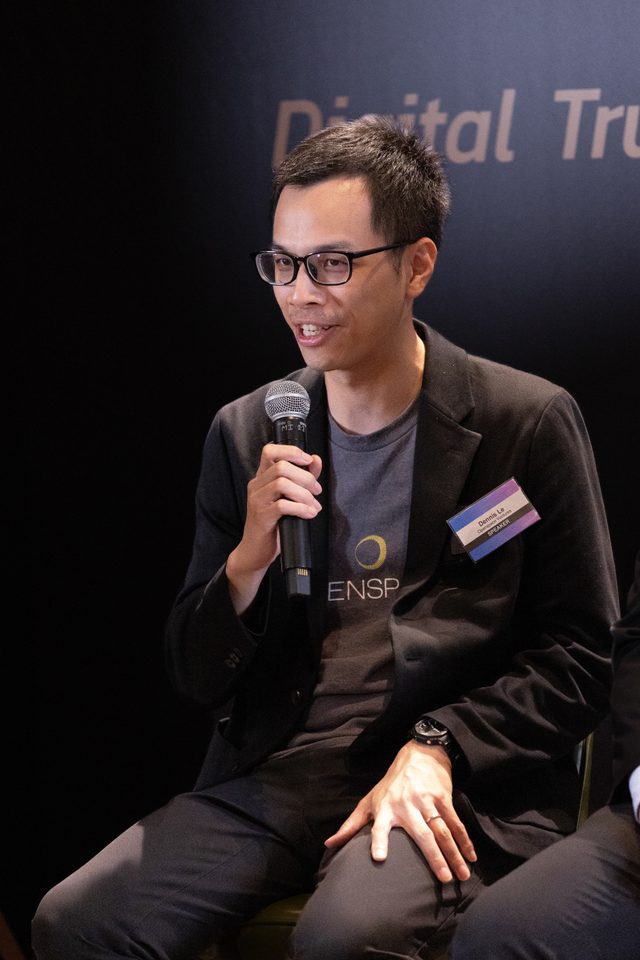
Dennis Le: I will go through this question in three areas – investment, portfolio management and fund operations. From the investment point of view, most crypto funds operate globally. So we often have a global mandate, and we have to source deals globally – this presents a challenge. If you are sitting here, it is very hard to get deals in the US and Europe. It comes down to sourcing, where your network is, and if you are able to build a global network and have a globally distributed team to help you cover different markets. From the portfolio management perspective, most good projects require value-add from investors, which often relates to technical support, token size, network and connections. Lastly, fund operation used to be a challenge, but it is getting sorted right now. It was difficult to find the right banks to serve you, and find the right fund admin, especially after Silicon Valley Bank collapsed. A lot of banks don’t want to touch this segment at all. You are getting served today; more fintech companies are coming in and bridging a gap. We often have to go to second-tier guys for auditing because the Big Four might not provide these kinds of services, but it is getting solved.
Hong Kong’s crypto licensing scheme concluded at the end of February. There were about 24 applications for virtual asset trading platform (VATP) licences. Singapore did the same process some years ago and got about 70 applications. Apart from the number of applicants, how do both jurisdictions compare here?
Shaun Leong: Both jurisdictions are very competitive and fairly similar from a regulatory framework perspective and definitely from the legal perspective in terms of what businesses are allowed to do. Competition would always bring the best out of each other. One thing that Singapore has is, we have direct access to a vibrant and lively ASEAN market – Indonesia, Vietnam, and Thailand. There is tremendous opportunity directly in our front yard and backyard. We are at the epicentre of this environment. For Hong Kong, from a risk management perspective, you would have to have a nuanced understanding of the extent, if any, of the policy motivations from mainland China, which would creep into the HK jurisdiction directly or otherwise. That is always an overarching point that cannot be ignored. Whereas for Singapore, we dictate our own regime and set a path forward from a centralised perspective.
When it comes to the future of money, how do you see digital trusts vs traditional banking/finance?
Kavi Harilela: Traditional banks will always be an important player. We are not intermediating them. We are actually engaging them again with us taking the role of doing the KYC they are not capable of doing, or by them not understanding their clients, or by overburdening their clients with regulations and their own KYC. That is partly because they operate in multiple jurisdictions – for example, having to follow regulations between all the 100 jurisdictions they operate in. This means they need to have an all-encompassing solid, strict compliance measure, which may not be applicable to one jurisdiction like HK or Singapore. Due to this overarching environment that they have to create, we now engage them and take on that burden by being the intermediary between traditional banks and the Web 3 world. We provide that platform for our clients.
How are you assessing Hong Kong’s big bet on crypto compared to other Asian geographies? Do you think the biggest downside to Hong Kong’s embrace of digital assets is that the nascent industry remains highly susceptible to malfeasance? Don’t you think that becoming Asia’s premier digital assets hub will be a bumpy ride that will test regulators’ and investors’ mettle?
Bosco So: Hong Kong currently needs a more clear legal framework. Unlike Singapore, at this moment, Hong Kong has only got a VASP licence regime, which only covers the exchange that it is going to incorporate.
In the last 24 months, a combination of factors has seen SG become a family office hub. How do you see family offices shaping the investment scene in this region—be it becoming LPs, doing directs, increasing employment opportunities for startups and growth companies in this region, or other ways?
Dennis Le: I would divide them into two – those who have been here for some time and those who are new. Those who have been here for some time, they have been investing in the GPs here. We know them well. Increasingly, we are seeing a lot more family offices participating in the private capital market. They are doing more direct deals and also investing in GPs to learn how the system works and to get access to deals. This is good as it allows companies in SEA to have access to this kind of alternate capital. This also allows VCs to try and differentiate themselves and add more value so they can attract investments from these family offices. But the new family offices, while we have had a chat with a few of them, we have not seen them being active in the private markets space. It remains to be seen if they will ramp up their activities over here.
The 2020 VCC structure Singapore put in place tax and legal incentives for hedge funds, venture capital and private equity firms to set up in Singapore, similar to programs in such offshore hubs as the Cayman Islands and Luxembourg. How much of a game-changer has this been?
Shaun Leong: This has been a huge success, and one of the key factors that led to the momentum that we see in the family office space is the flexibility that the VCC structure provides, where you can have an umbrella framework, and you get to divide your funds into separate sub-funds. There is a lot of flexibility to customize the investment motivations for each fund, yet allow adequate control with the family. So, I think the VCC is an integral part of supporting the growth of the family office space.
What is your relationship with family offices? Have you gotten family offices to use trusts as a vehicle for investments and wealth transfers?
Kavi Harilela: Our firm has been engaged with many family offices, and several of them are our clients. They use it for multiple reasons – some for privacy, some for estate planning, and we also see family offices that have made a lot of wealth from the Web3 investments. Firms that have made their money from Web3 – we call them the new rich – are facing an issue as they try to get off-ramp and enter the banking world. This is an immense problem right now, and we have become a natural solution for them. I would say the old rich are also now approaching us because they want to diversify their portfolio and make some investments in Web3. So it is a dual effect here.
What are the regulation differences for HNWI in these two cities, and how should an investor choose?
Bosco So: In HK, the regulations have much less stringent requirements for single-family offices. There are free factors to decide whether it is a single-family office, whether it carries on business in Hong Kong, whether it generates any profits, and if these elements are not matched, they are not required to obtain a licence in Hong Kong. But, compared to Singapore, even a single-family office is required to be licensed. If a client prefers to have a more relaxed regulatory environment, Hong Kong might be a better choice.
How will AI impact the future of VC? Will NFTs make a comeback in 2024?
Dennis Le: We are using AI modules, copilot in particular, which has helped improve productivity, do due diligence, market research, and document summarisation. Do we think AI will replace us someday? No, actually. I don’t think it will happen so soon. As VCs, we make a lot of judgments based on information asymmetry, and these are not available on the internet for AI models to be trained on. The feedback loop is actually quite long. Regarding our investments, it is very hard to tell if we are making a good decision or not until a few years later. So it is hard to train AI on that, and I think it is safe to say we will keep our job for quite a while.
Will NFTs make a comeback? I understand this question in two ways. Number one, whether trading volume and value will come back. To be honest, I really don’t know. I can’t really tell. And historically, I have been humbled by the market many times. But are adoption and use cases growing? Yes, definitely! I was chatting with the Pudgy Penguin CEO this morning, and they sold a million toys last year. Each of them has a QR code, and if you scan it, they will automatically have two or three NFTs and you don’t even know they are NFTs. So adoption is growing, and it is more accessible to consumers, which is a very positive trend.
Will Asia lead the crypto revolution in 2024 and beyond?
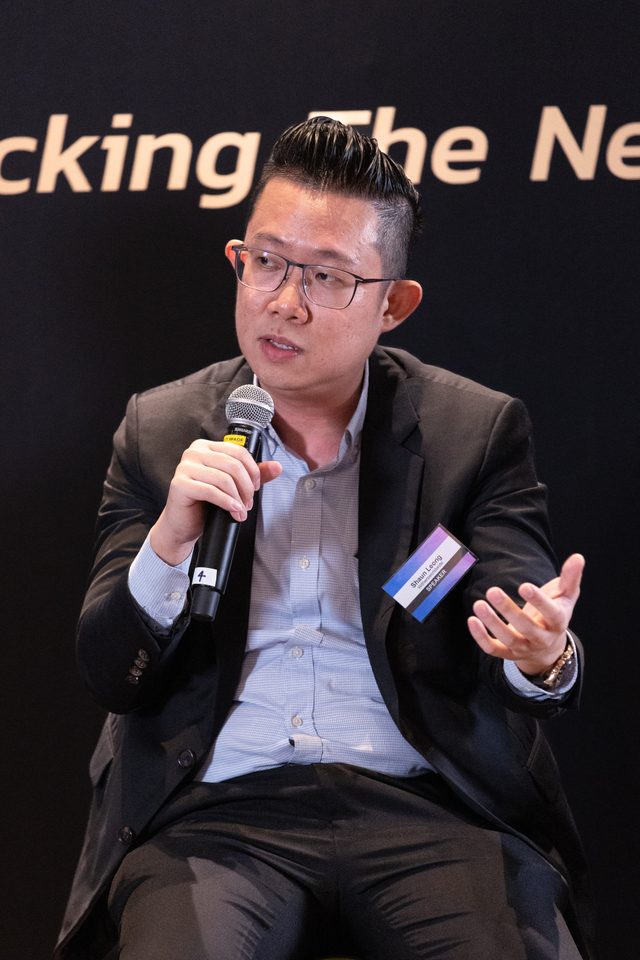
Shaun Leong: The answer is ‘yes’. Asia will actually be a leader in the digital asset space because the jurisdictions you mentioned – Dubai, Hong Kong, Singapore – all have a common denominator, which is the willingness to keep an open mind to innovation. There is definitely a lot of potential for collaboration and working together. And I think these jurisdictions, or these cities or Web3 centres, if I could put it that way, are surrounded by a lot of emerging jurisdictions, emerging countries, whether it is socio-political or from an economic standpoint, and if you were to look at AI, it needs blockchain because AI needs data. There is a lot of data in blockchain. Blockchain also needs AI because it is so slow; you need AI to boost your computing power, and if you are surrounded by a lot of emerging economies, you have a substantial volume of data points to build both your blockchain infrastructure and your AI integration. I think the opportunity is definitely there.
What services do you plan to provide to cater to the new trends we are seeing in 2024?
Kavi Harilela: What we see today is a lot of movement within the Web3 world, especially a lot of people coming back into crypto. Coming back into crypto means they need the ability to come on-off ramp, they need to hold assets and the custodian solutions, and they need to have a trusted partner to do that. We have custodians who hold our crypto coins and they are insured, and we protect it that way. We also have the ability to hold clients’ fiat money held with financial institutions, which is also guaranteed by deposit protection schemes by various governments. This is how we operate within this environment where it is regulated, but it allows the people now to access Web3 within their own ecosystem of trust.
What is HK’s strategy for future Web3 investment? Is it possible for it to become Asia’s premier Web3 jurisdiction?
Bosco So: I think it is possible. I am not sure if you all had losses from the FTX collapse, but since that crash, we have seen more clients engaging in trust services because many feel they cannot trust the exchanges anymore. Several inquiries had come in. Now in the bull run, somehow people are claiming monies back from the FTX crisis. Again, we have more enquiries of people wanting to set up their own trust as they no longer believe in the exchanges, or, they no longer want to store their digital assets within their wallets. I think in the future, perhaps trust as a solution for Web3 players will allow them to utilise their crypto assets. And they can use it in a more flexible way and connect with the traditional financial world. And where the traditional banks might not be willing to intake, perhaps trust is their solution to bridge them with the traditional world.


